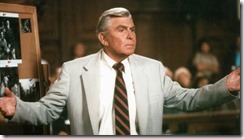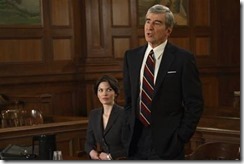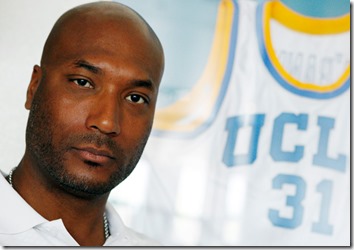microeconomics and you

Things Discussed:
- Lost Herbert: Recruiting against Jim is tough.
- DC: Zach Orr has a couple of NFL opportunities now so figuring that out will be the most important thing.
- Concerned that this administration is going to Bennie Oosterbaan Sherrone Moore's program. Needs to not just support but lead the transition to a new version of the college football landscape.
- Beefing up recruiting department: can criticize Jim Harbaugh here because he spent recruiting jobs on hires like Stalions and Shemy.
- Sherrone going hard for ND's Chad Bowden. Fended off Harbaugh for Grant Newsome, fighting for Elston.
- Warde: His "transformational not transactional" interview was the end for us; he's not the guy for the future. Transactional means fair; when you say you don't want that you're saying you don't want the players getting a fair deal.
- Michigan's culture doesn't have to be these 1930s ideas. Hunter Dickinson would be here if we had this working right.
- There's more in the tank: Michigan's Athletics department doesn't need to be taking money for naming buildings.
- NCAA dysfunction has to be part of this. We should be leading the way towards fixing the system, not pretending the old system still works. Players don't benefit from everyone being a free agent because it makes them all replaceable. That system sucks for everybody because there's no investment in the players, there's less time to get to know your system, and nobody's getting an education.
- Right now we're hanging onto a system that's already dead, falling into a terrible oligarchic system. System should be one that forces the universities to be stuck with the players they get, because it makes them responsible for the player's education and development. Right now the NCAA is antithetical to the higher ideal the NCAA was set up.
- Seth: communist economies—that's what the NCAA model is—require a black market. The cheating is part of the system.
- What we're seeing is the fall of that system, and what Michigan should be doing is leading the way to a new system.
- How? Pay our players to be in a Super Bowl commercial advocating for a player's union, which we start here.
- Seth & Brian argue whether the history of Oosterbaan/1950s is relevant today.
[Hit the JUMP for the player, and video and stuff]
Alternative Title: O’Bannon… You Came And You Sued For Injunction…
Alternative Alternative Title: Selling Little Bottles of OLB #9
The O’Bannon antitrust trial started this week, and because trials are fun and listening to the NCAA’s lawyers is amusing as hell, let’s talk about it. To properly understand this, we have to go back to the year 1890 and the passage of the Sherman Antitrust Act…
Sweet tapdancing hell we are NOT doing this again. We’re not going back to freeking nineteenth century.
Oh come on, this stuff is interesting.
 |
| Plaintiff's attorney |
I just died of boredom.
Fine. But we at least have to go back to the year 1995. Ed O’Bannon is the best player in college basketball; he averages 20.4 points and 8.3 boards and wins the Wooden award, and his UCLA Bruins win the national title. So that was cool. Then, a decade later, a younger relative showed O’Bannon a copy of EA Sports’ NCAA 2007, which contained some classic teams, including the 1994-95 UCLA Bruins. O’Bannon noticed that (a) he was in that game, and (b) he hadn’t been paid anything for his appearance in the game. This, he deduced, was crap.
But he waived his rights to get paid for that, right?
Indeed. All athletes, before they play a single second, have to sign a waiver that relinquishes any rights they have in their likeness. The NCAA can use any player’s image for whatever the NCAA sees fit, and owes the athlete nothing. In fact, as you may know, if players DO get paid for their likenesses during their playing careers, they get suspended for an entire season. No, wait, that’s pot. You get suspended for one half of one game. But still, athletes can’t get paid.
There is, however, a way to get around that waiver. If the NCAA violated the law in forcing O’Bannon and other athletes to waive those rights, the waiver are invalid. If only such a law was passed during the Harrison Administration (NNTHA) that Bolded Disembodied Alter-Ego would let me discuss…
Sigh. Fine, just make it quick.
 |
| Other plaintiff's attorney |
WOO. The Sherman Antitrust Act makes certain anticompetitive behaviors by entities that have dominant positions in a given market illegal. It’s not against the law to create a monopoly, but if you have one, you can’t use it to restrain trade or hurt consumers. If you’re Microsoft, you can install Windows on 80% of all computers, and that’s not a problem. If you use that 80% market share to bundle everything with Internet Explorer so people won’t use Netscape Navigator, that IS a problem.
Yes, the problems of the 1990s were bizarre in hindsight.
And what exactly are the plaintiffs whining about?
When athletes start playing, they have to sign a waiver that surrenders all of their name, image, and likeness (“NIL”) rights to the NCAA. The NCAA can then use those rights however they see fit without compensating the athletes in any way. Two ways they use athletes’ NIL rights are in licensing for video games and licensing for live television broadcasts of games, promos, etc.
For video games, it’s a pretty easy case to make. The NCAA used to grant EA Sports the right to develop and sell video games with all of the FBS teams and players, and in exchange EA Sports would add a little depth to the Scrooge McDuck coin vault swimming pool. The NCAA has tried, half-heartedly, to argue that it is a coincidence that the rosters of every college team have every player with the appropriate height, weight, position, number, skin color, athletic characteristics, and general appearance. This issue bleeds over into other not-about-Player-X-but-definitely-about-Player-X stuff like jersey sales; sure, Michigan wasn’t selling Denard jerseys. But they were selling Denard jerseys.
The other issue is television rights. Right now, conferences sign television deals with networks, networks televise games, networks pay conferences large sums of money, conferences distribute that money among the member schools, and member schools give players… uh… the satisfaction of a job well done. O’Bannon is arguing that part of the value of those broadcasts are the result of the NIL rights that the players have to sign over to the NCAA.
[AFTER THE JUMP: More of what we're talking about here]

105